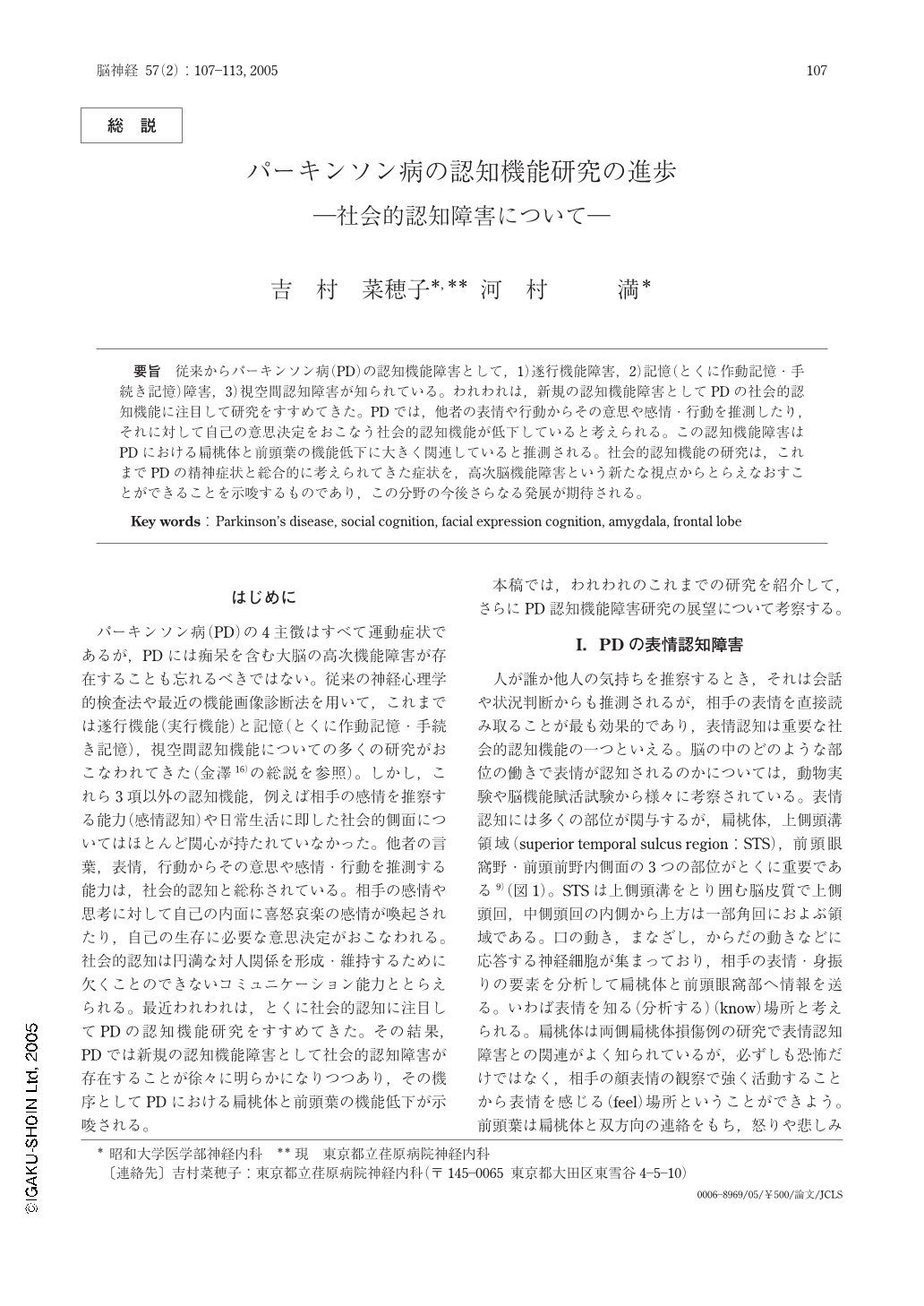Japanese
English
- 有料閲覧
- Abstract 文献概要
- 1ページ目 Look Inside
要旨 従来からパーキンソン病(PD)の認知機能障害として,1)遂行機能障害,2)記憶(とくに作動記憶・手続き記憶)障害,3)視空間認知障害が知られている。われわれは,新規の認知機能障害としてPDの社会的認知機能に注目して研究をすすめてきた。PDでは,他者の表情や行動からその意思や感情・行動を推測したり,それに対して自己の意思決定をおこなう社会的認知機能が低下していると考えられる。この認知機能障害はPDにおける扁桃体と前頭葉の機能低下に大きく関連していると推測される。社会的認知機能の研究は,これまでPDの精神症状と総合的に考えられてきた症状を,高次脳機能障害という新たな視点からとらえなおすことができることを示唆するものであり,この分野の今後さらなる発展が期待される。
The characteristic four symptoms of motor deficits, bradykinesia, rigidity, resting tremor and impairment of postural reflex with Parkinson's disease (PD) are accompanied by specific cognitive deficits. Deficits of executive functions, skill learning, and visuospatial cognition are well known. The results of our recent studies show the deficit of social cognition which include facial expression recognition, sensation of gaze direction, “theory of mind” in comprehension, and decision making. These symptoms can be explained by the damage of the amygdala and/or its connection, which are known to play a crucial role in social cognition, it is attributed to the involvement of amygdala and it's connection to the frontal lobe in PD. The impairment of social cognition is an important mental change associated with PD.

Copyright © 2005, Igaku-Shoin Ltd. All rights reserved.


